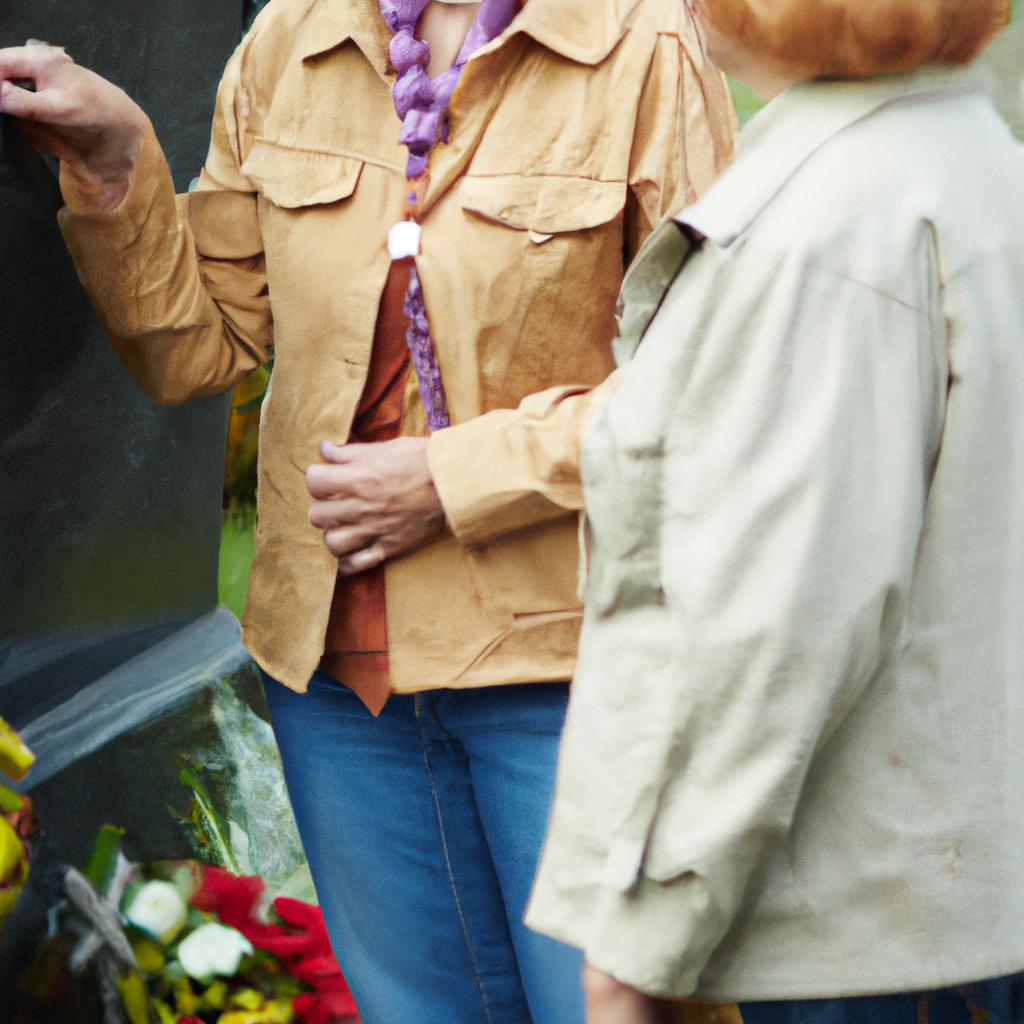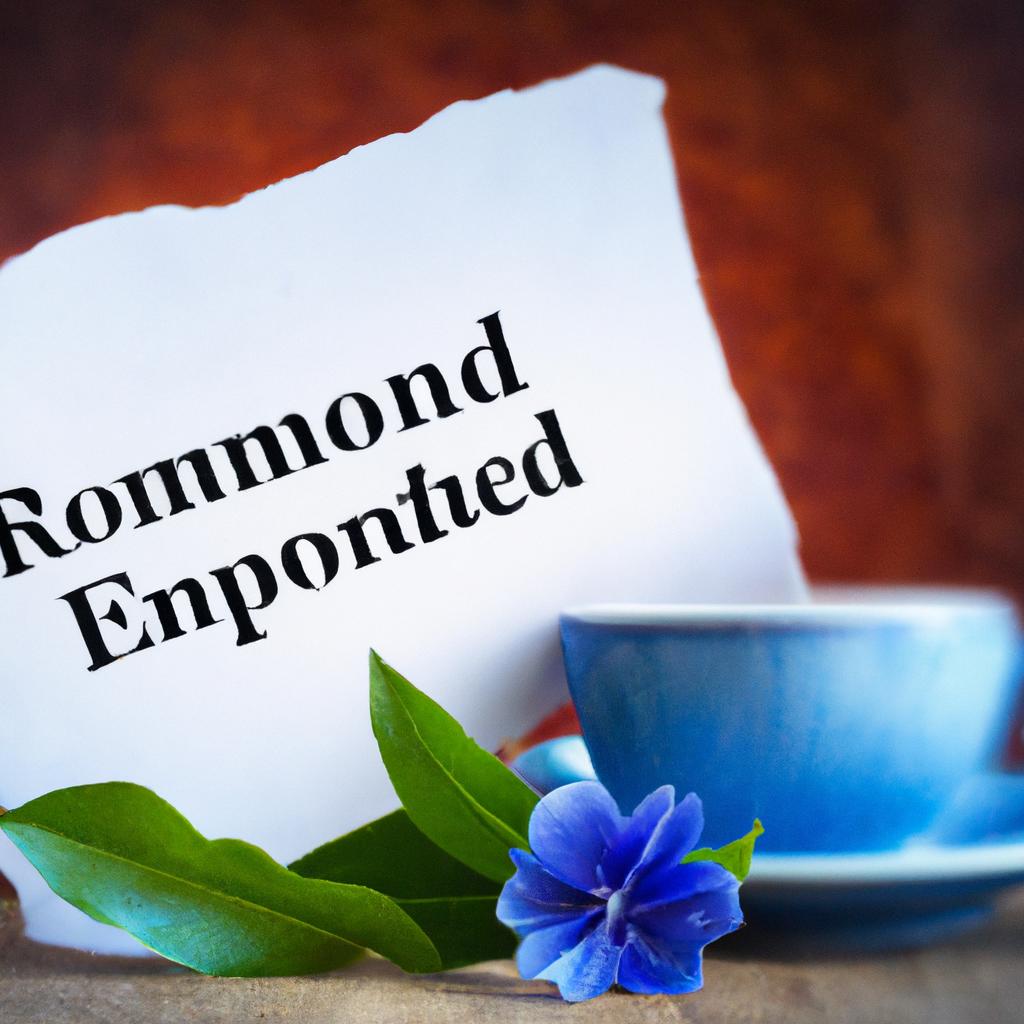In the nuanced world of estate planning and funeral arrangements, the eulogy serves as a poignant and powerful tribute to the departed. As seasoned legal professionals at Morgan Legal Group in New York City, we understand the importance of the eulogy’s purpose in capturing the essence of a life lived and honoring the memory of the deceased. Join us as we delve into the significance of crafting a eulogy with precision and care, exploring its role in the intricate tapestry of estate planning and probate proceedings.
Understanding the Importance of a Eulogy in Honoring a Loved One
When it comes to honoring a loved one who has passed away, delivering a heartfelt eulogy can be a powerful way to pay tribute and celebrate their life. A eulogy is a speech given at a funeral or memorial service that highlights the accomplishments, qualities, and impact of the deceased. It serves as a way to remember and honor their memory, while also providing comfort and closure to friends and family members.
Writing and delivering a eulogy can be a daunting task, but it is an essential part of the grieving process. Here are some reasons why a eulogy is important in honoring a loved one:
- Personalizes the tribute: A eulogy allows family members and friends to share personal stories, memories, and reflections about the deceased, painting a vivid picture of who they were as a person.
- Provides closure: Delivering a eulogy can provide a sense of closure and help mourners process their grief by celebrating the life and legacy of their loved one.

Crafting a Meaningful Eulogy: Tips and Recommendations
When crafting a meaningful eulogy, it is important to remember the purpose behind such a speech. A eulogy serves as a tribute to the life and legacy of the deceased, honoring their memory and celebrating the impact they had on those around them. It is a chance to reflect on the unique qualities and contributions of the individual, highlighting their virtues and accomplishments for all to remember.
As you prepare to deliver a eulogy, consider the following tips and recommendations:
- Reflect on the person: Take some time to think about the character of the deceased and the moments that defined their life.
- Share personal anecdotes: Draw on your own experiences with the individual to provide a family member dies”>personal touch to the eulogy.
- Focus on the positive: Highlight the positive aspects of the person’s character and the impact they had on others.

The Healing Power of Delivering a Eulogy at a Funeral Service
Delivering a eulogy at a funeral service is a powerful and healing experience for both the speaker and the audience. It provides an opportunity to honor and celebrate the life of the deceased, while also allowing for the expression of emotions and memories. The act of speaking about the person who has passed allows for a sense of closure and can help in the grieving process.
Furthermore, delivering a eulogy can help in capturing the essence of the person’s life and legacy, preserving their memory for future generations. It allows for reflection on the impact the individual had on those around them, and can provide comfort and solace to family and friends during a difficult time. Overall, delivering a eulogy serves an important purpose in honoring the deceased and providing a sense of healing for all those involved.

Personalizing Your Eulogy to Celebrate the Life of the Deceased
When personalizing a eulogy to celebrate the life of the deceased, it is important to reflect on the unique qualities and experiences that made them who they were. By incorporating specific memories, anecdotes, and characteristics into the eulogy, you can paint a vivid picture of the individual and honor their legacy in a meaningful way. Highlighting their passions, accomplishments, and relationships can help capture the essence of the person and create a touching tribute for those in attendance.
One effective way to personalize a eulogy is to gather information from family members, friends, and loved ones who knew the deceased well. By compiling stories, quotes, and insights from those who were close to the individual, you can create a comprehensive and heartfelt eulogy that truly reflects the person’s impact on the lives of others. Additionally, considering the deceased’s favorite poems, songs, or sayings can add a personal touch to the eulogy and help convey their unique personality and spirit.
Q&A
Q: What is the purpose of a eulogy?
A: A eulogy serves as a way to honor and remember the life of a loved one who has passed away.
Q: How does a eulogy help with the grieving process?
A: By sharing stories, memories, and reflections, a eulogy can provide comfort and closure for those who are mourning.
Q: Can a eulogy celebrate the life of the deceased?
A: Absolutely! A eulogy can highlight the accomplishments, passions, and uniqueness of the individual, celebrating their life in a meaningful way.
Q: Who typically gives a eulogy at a funeral?
A: The eulogy is usually delivered by a close family member, friend, or religious leader who knew the deceased well.
Q: Is it common for multiple people to give eulogies at a funeral?
A: Yes, it is not uncommon for multiple individuals to share their memories and tributes during a funeral service.
Q: Can a eulogy be written in advance or improvised on the spot?
A: Both options are possible. Some people choose to prepare a eulogy in advance, while others may speak from the heart in the moment.
Q: How long should a eulogy be?
A: There is no set length for a eulogy, but it is typically around 5-10 minutes long. It is important to be concise and respectful of the audience’s time.
Q: What should be included in a eulogy?
A: A eulogy may include a brief biography of the deceased, personal anecdotes, memories, and reflections on their impact on the speaker’s life.
Q: Can a eulogy include humor and lighthearted moments?
A: Yes, incorporating humor and lighthearted moments in a eulogy can help celebrate the joyful aspects of the deceased’s life and bring comfort to those who are grieving.
Concluding Remarks
In conclusion, eulogies serve as a powerful way to honor and remember a loved one’s life. Whether it’s celebrating their achievements, highlighting their character traits, or simply offering comfort to those who are grieving, eulogies play a crucial role in the mourning process. By sharing memories and reflecting on the impact that person had on our lives, we can find solace in the knowledge that their legacy will continue to live on. So, the next time you’re called upon to deliver a eulogy, remember the true purpose behind your words: to honor, respect, and cherish the memory of a special individual who will forever hold a place in our hearts.
 Eulogy Purpose: Why It Matters and How to Craft a Meaningful Tribute for Your Loved One
Eulogy Purpose: Why It Matters and How to Craft a Meaningful Tribute for Your Loved One
Losing a loved one is one of the most difficult experiences a person can go through. During this time of grief and mourning, many people struggle to find ways to honor and remember their loved ones. One powerful way to do so is through a eulogy.
A eulogy is a speech or tribute that honors and celebrates the life of someone who has passed away. It is often delivered at a funeral or memorial service by a family member or close friend of the deceased. But what exactly is the purpose of a eulogy? In this article, we will explore the importance of a eulogy and provide tips on how to create a meaningful tribute to your loved one.
The Purpose of a Eulogy
1. Provides Comfort and Closure
One of the primary purposes of a eulogy is to provide comfort and closure to the family and friends of the deceased. The act of creating and delivering a eulogy can be therapeutic for the speaker as well, as it gives them an opportunity to reflect on the life and legacy of their loved one. A eulogy can also help bring a sense of closure to the grieving process by allowing people to say their final goodbyes and celebrate the life of the deceased.
2. Honors and Celebrates the Life of the Deceased
A eulogy serves as a way to honor and celebrate the life of the deceased. It allows family and friends to share fond memories, funny stories, and meaningful moments of their loved one. This can be a healing experience for those who are grieving, as it allows them to remember their loved one in a positive and meaningful way.
3. Offers Perspective and Reflection
Losing a loved one can be overwhelming, and it can be difficult to make sense of the loss and the emotions that come with it. A eulogy can provide perspective and reflection on the life of the deceased, and even offer some wisdom and life lessons from their experiences. It can also serve as a reminder to those listening to cherish their own lives and the memories they create with their loved ones.
4. Preserves Memories for Future Generations
A eulogy can serve as a way to preserve memories for future generations. It allows younger family members who may not have known the deceased as well to learn about their life, personality, and legacy. It also gives them a chance to connect with their family history and gain a better understanding of their roots.
How to Create a Meaningful Eulogy
1. Start With Reflection and Planning
Before you begin writing your eulogy, take some time to reflect on the life of the deceased and gather your thoughts. Think about the memories you shared together, special moments, and their impact on your life and the lives of others. It can also be helpful to talk to other family members and friends for additional insights and stories.
2. Keep It Personal and Authentic
A eulogy should be personal and authentic. It is important to speak from the heart and share your true feelings about your loved one. Remember to include specific details and anecdotes to make the eulogy more meaningful and relatable.
3. Use Appropriate Humor
Humor can be a powerful tool in a eulogy, as it can provide a sense of lightness and warmth during a difficult time. However, it is important to use appropriate humor and avoid anything that may be offensive or insensitive. Be mindful of cultural and religious differences when including humor in your eulogy.
4. Organize Your Thoughts and Keep It Concise
A well-organized eulogy can make all the difference in delivering a thoughtful and impactful tribute. Start with a strong opening that captures the attention of your audience. Then, organize your thoughts into a few main points or themes, and use examples and stories to support them. Finally, remember to keep it concise and avoid rambling or going off-topic.
5. Practice and Prepare
Like any public speaking event, it is important to practice and prepare for your eulogy. This can help you feel more confident and comfortable when delivering it in front of a large audience. Practice reading your eulogy out loud, preferably in front of a mirror or with a close friend, and make any necessary adjustments.
In Conclusion…
A eulogy is a powerful way to honor and remember a loved one who has passed away. Its purpose is to comfort those who are grieving, celebrate the life of the deceased, and offer reflection and perspective. Crafting a meaningful eulogy takes time, reflection, and preparation, but the impact it can have on those who are grieving and future generations is immeasurable. Remember to speak from the heart, keep it personal and authentic, and use appropriate humor to create a heartfelt tribute to your loved one.


